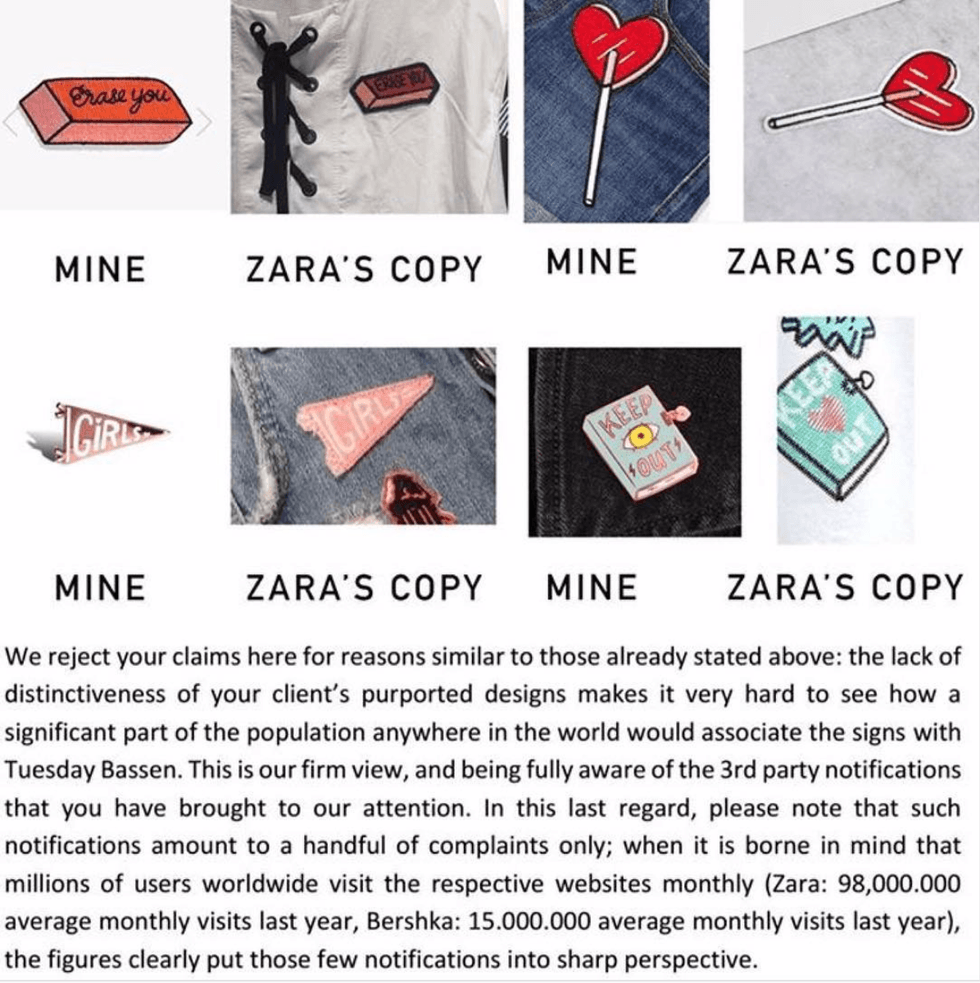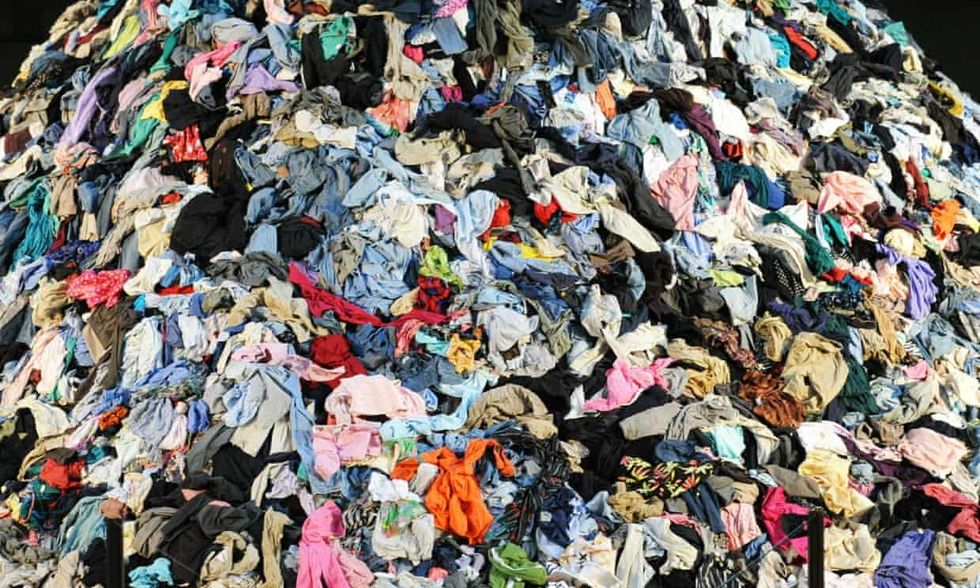Fast fashion is like fast food: quick, cheap, constantly advertised, bad for your body, bad for the environment. Yet we love it. What exactly is fast fashion, you may ask? Well, according to the Oxford Dictionary, fast fashion is defined as "inexpensive clothing produced rapidly by mass-market retailers in response to the latest trends." Sounds great, right? Wrong. In reality, the necessary means to make this possible include a variety of unethical and unsustainable methods that are harming our environment as well as the people making these clothes.
Fast fashion, in theory, is great because it allows for the consumer to purchase more clothes for less, but the consumer is wearing these clothes less often and disposing of them at an unprecedented rate. These companies make a huge profit off of this by introducing new products multiple times a week. Instead of replenishing their stock when something sells out, they replace these items with new clothes of a different style, making the older clothes outdated and unfashionable, thus compelling the consumer to buy more to keep up.
These companies tend to steal or copy ideas and designs from independent artists because they are so desperate to create new trends for a profit. Tuesday Bassen, an indie illustrator and designer, had her designs stolen by the fast-fashion company, Zara. When she confronted them about the matter at hand, they basically told her that her claims were invalid because she wasn't popular enough for it to even matter.

Due to the mass production and disposal of coming and going trends, most of these companies unsold clothes go to our already-crowded landfills; only twenty-five percent of their unsold products go to sorting and recycling factories for clothes. It has been stated that five percent of all landfill space is textiles and the average US citizen throws away over seventy pounds of clothing every year.
The textile industry emits more greenhouse gas emissions than international shipping and aviation combined. Multiple brands choose to incinerate their old stock rather than donate it because it "ruins their image" as a brand. Some reports even claim that the textile industry is the second dirtiest industry in the world, next to the oil industry. And we're putting it on our bodies.

Most of these businesses use cheap labor as a means of getting their new products as fast as possible, but this cheap labor is often sourced from sweatshops, where workers are employed at inhumanly low wages for long hours in terrible conditions. These workers are slaving away for up to sixteen hours a day, risking their health and wellbeing. Since 1990, more than four hundred workers have died while working in a factory and over thousands have been wounded.
Female sweatshop workers are constantly sexually harassed, they are not offered maternity leave whatsoever, and the creation of trade unions is strictly prohibited, thus preventing any worker from defending their rights. These workers are exposed to toxic, carcinogenic chemicals every day, including the chemicals used to create vibrant colors and prints for the clothes in your local stores. These chemicals are dunked into streams and rivers, polluting the water and soil nearby.
On the bright side, there is a way that you can help. Resist the urge to buy from these places, it may be cheap and it may be cute, but think about everything that single garment has been through to get into your local Forever 21, Zara, H&M, etc. If you have clothes you want to get rid of that are still wearable, think of donation as your last resort; over eighty-five percent of all donated clothes end up in landfills. Thrift stores get so much clothing that they can only keep so much to put on their racks and they end up throwing the rest away.
Try selling them on platforms like Depop or Poshmark. Ask around if any of your friends or family would maybe want some of the items you're giving away. You could even have a yard sale if you really wanted to, but it's better to find your clothes a new home than expect a thrift store to do it for you. If you have clothes that are too damaged to be sold, there are a million DIY projects out there that upcycle old clothes into literally anything.
I don't discourage thrifting, though. I have found some great pieces at thrift stores, and when you buy from there, you're giving clothes that could've ended up in a landfill a home. There are tons of trendy clothes on Depop and it's super easy to find something similar to what you're looking for.
There are plenty of ways to shop sustainably and to avoid these fast-fashion companies that care only about the money they're making, and not about the world they're living in. There are a million YouTube videos on how to refurbish or upcycle your clothes. We tend to get so caught up in the hype and luxury of buying new things, we don't realize we can make do with what we have in front of us. And hey, you'll probably save more money like this, too.



















